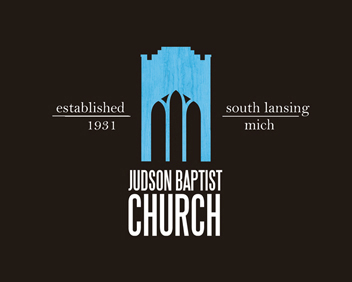Bible or Buzzwords?
By the Rev. Zachary Bartels
For a time, I attended a church known for its—how you say—lively business meetings. Just about any issue became officially “hot-button” and fierce debate was apparently in order whether we were considering buying new hymnals, choosing the color of carpet, or planning a mission trip. On one hand, I suppose it’s a good thing to take the business of the church seriously; after all, this is God’s Kingdom we’re talking about. However, when arguments heat up at business meetings, it’s been my experience that people are usually fighting for their opinion or their idea, rather than truly pursuing God’s will.
Case in point, I remember a “discussion” about possibly passing a church budget without knowing where all of the money would come from. Compelling biblical arguments were initially made both for fiscal conservatism and for “stepping out in faith.” Before I knew it, though, someone was standing at the microphone demanding, “Doesn’t the Bible tell us that God helps those who help themselves?!”
Um, no. It doesn’t.
Thus the bane of congregational church polity: just as in a presidential election—where the well-researched, thoughtful vote counts exactly as much as the vote prompted solely by Hollywood or talk radio—so mature believers who immerse every thought and decision in prayer and Scripture can be outvoted by people who think “Cleanliness is next to godliness” is actually a verse in the Bible. (It isn’t).
This is all symptomatic of a much bigger problem. In a pinch, many of us are tempted to use God’s Word as a tool to get our own way. Add to that the biblically illiterate state of the Church in America and the resulting quasi-biblical exchanges would be funny if they weren’t so sad.
Am I talking to you? Well, let’s see. . .
POP QUIZ
Which of the following passages are actually found in the Bible? (answers below)
- “A fool and his money are soon parted.” Y / N
- “Money is the root of all evil.” Y / N
- “Spare the rod, spoil the child.” Y / N
- “Be in the world, not of it.” Y / N
- “Love the sinner, hate the sin.” Y / N
- “To err is human; to forgive, divine.” Y / N
- “To thine own self be true.” Y / N
- “God won’t give you more than you can handle.” Y / N
- “All things in moderation.” Y/N
Sometimes, as I prepare a sermon, I think that a particular point is going to be an amen-worthy, gasp-inducing epiphany, only to have it fall flat. And other times, I’ll just throw in a comment I hadn’t even intended only to realize later that it was quite profound. The latter happened this past Lord’s Day. As I preached on Nehemiah 2, I noted that the church speaks more in clichés that we ourselves have invented than in the terms of Holy Scripture (which is supposed to be our very foundation). How telling is that? Seems like an innocent problem, but it’s actually very dangerous.
For example, the early church, suffering persecution under Pagan Rome, used to have secret methods of identifying themselves to fellow Christians. One of the first was for one Christian to draw half of an Ichthus (a fish symbol) in the sand with a stick. If someone completed the fish symbol, he was assumed to be a fellow believer. That worked for a little while, until the very obvious ritual became common knowledge (James Bond they were not) and, before long, Christians were being dragged to prison in record numbers. So instead of one easily counterfeited signal, Christians shifted to a new code: one believer would begin a passage of Scripture. If their companion finished it, he or she was assumed to be a believer. Still not fool-proof, but at least this system required a heck of a lot more work on the part of a Roman double-agent than just drawing a line in the sand with a stick.
Do you think you would be able to convince the early church that you too were a Christian (assuming the language barrier was somehow not a problem)? If a Christian approached you and said, “You search the Scriptures because you think that that in them you have eternal life. . . ” would you have any clue what comes next? Or what if they said, “All Scripture is God-breathed and profitable for. . . ?” Many a life-long Christian would be hard-pressed to pass this test compared to Christians of previous generations. Even I wouldn’t measure up—several seminary professors have told me how the majority of students on their way to professional ministry know very little of the Bible’s fundamentals—the basic stories, passages, and concepts that most everyone knew just fifty years ago.
Maybe today we should update this method and use our Christian clichés and buzzphrases as the secret handshake (or are we already doing that?) Would you do better at that pop quiz? “Let go and. . . ” (“let God!”) “What would Jesus. . . ” (“do?”) “It’s not about religion, it’s about. . . ” (“relationship!”) I’m tempted to go off on a tangent of how I despise most Christian clichés / buzz-phrases and why, but since this is already a spinoff from a sermonic tangent, I shall save that particular rant for another time .
So what am I trying to do here, make people feel bad? Maybe a little bit (and that would include me—I have only memorized a handful of previously unknown chapters of Scripture since I’ve been pastoring Judson; this is something I used to do continually). But most of all, I want to encourage you to make God’s Holy Word (not our pithy proverbs and truisms) the foundation of your life and faith.
For many Christians, reading God’s Word has become one of the lowest priorities of their spiritual lives. They have to have the latest praise and worship CDs, know all the latest buzzwords (so they can be “missional,” “incarnational,” and “purpose-driven”), and of course they have to read as many of the religious best-sellers as they can get through in order to seem “relevant,” but I submit that all of this is loss if we haven’t hidden God’s Word in our hearts.
What I propose is crazy, I know, but it’s clear to me that the Church needs (a lot) fewer ‘shacks,’ prayers of Jabez, and post-‘rapture’ hijinks and a lot more plain old Bible reading and prayer. Yeah, I’m suggesting you turn off the stupid TV and get your nose in the Scriptures. It might even pay off. After all, God helps those who help themselves, right?
Answer: None of these are quotes from Scripture (although #2 & #3 are similar to actual verses; 1 Timothy 6:10, Proverbs 13:24)
Back to Articles




